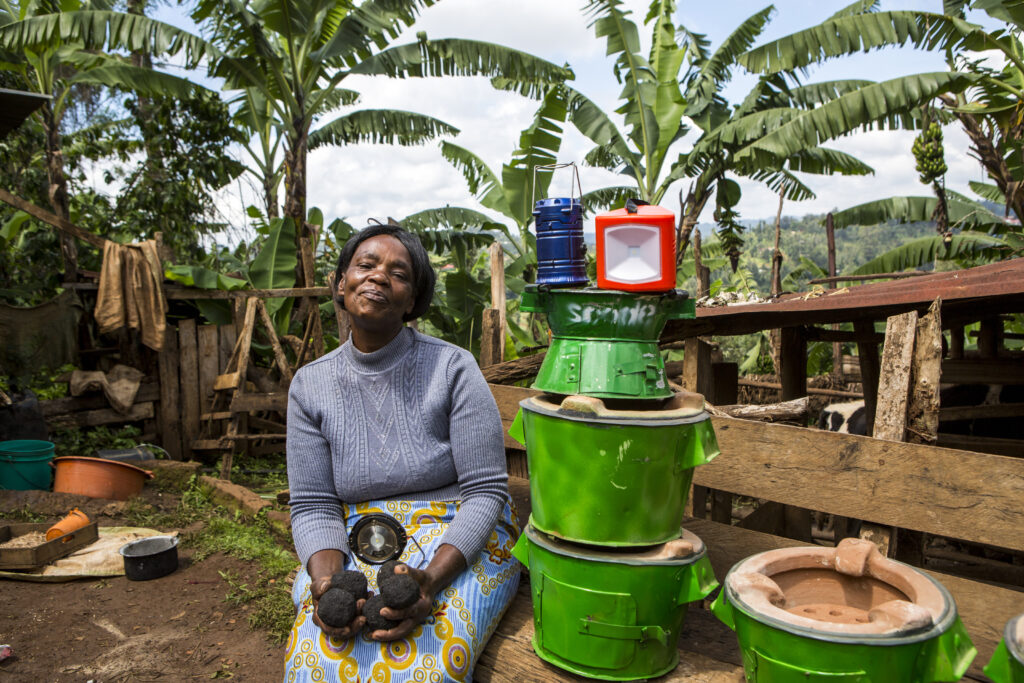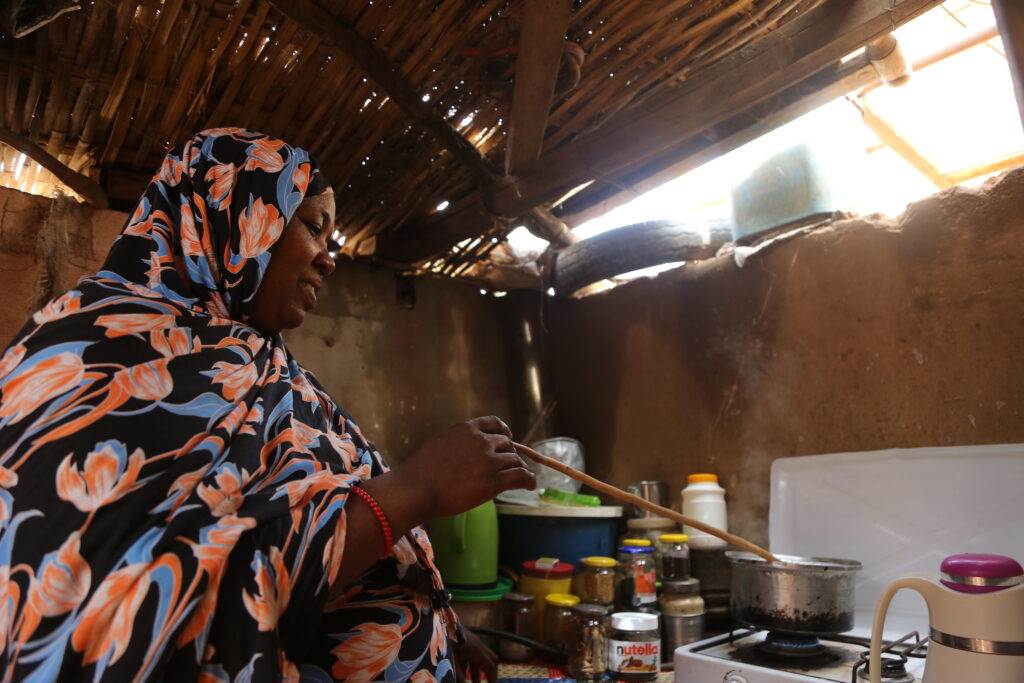Big change starts small: Catalysing economic empowerment for women
GenderBlog
Big change must start small to work for those who need it. This belief was central to the philosophy of our founder E.F. ‘Fritz’ Schumacher. His community-focused philosophy is as relevant now as when Fritz was working.
This is the first in a series of articles written by Practical Action staff from around the world, about our ‘Big change starts small’ ethos. In this post, Lydia Muchiri, our Gender Advisor in Kenya, explores our clean cooking work and how it’s tackling the status quo as well as improving health and incomes.
–
A self-sustaining clean cooking industry – powered by women – is flourishing in Kenya. It’s the result of our Women in Energy Enterprises Programme, which is instilling women with the confidence, skills, knowledge, and networks to tread an unconventional path and take control of their lives and liveliho0ds.
In millions of kitchens worldwide, women and girls breathe polluted air caused by dirty cooking fuel. Our vision wasn’t just for women to have access to cleaner cooking options in their own kitchens. It was to transform the whole cooking sector so that women can take part in the development, supply chain and sales of cookstoves, fuels and solar-powered products.
When the women we worked with felt empowered to take matters into their own hands, we saw a much greater spread of women as producers, sellers, and marketers of cookstoves, cleaner fuel briquettes and solar products, not only as end users.

Mary has grown a successful business making and selling low-smoke briquettes.
This is the crux of our clean cookstove work – it’s not only about women’s health. It’s not even about women entrepreneurs rejecting ingrained gender roles and running successful businesses. It’s about making the whole sector work better so it creates employment opportunities in production and distribution of clean stoves and fuels so women can benefit in many more ways.
Where once we saw women selling a stove to cover a one-off cost – for example, some sugar that day – we now have women seeing clean energy as a career. We have seen that women can go beyond what was always imagined for them.
Overcoming ingrained social norms
Cleaner cooking has, historically, been seen as a ‘women’s affair’, and it’s been hard to convince male-dominated financiers and policymakers that it’s an important issue. For this programme to be effective, we needed to work with governments, businesses, and communities to bring household air pollution to their attention and keep it there. We needed to help empower women to start making their own changes too.
The need for action is urgent. Household air pollution caused by unclean cooking fuels – like wood, charcoal, and agricultural waste – is estimated to cause 3.2 million premature deaths a year. Women and children account for the majority of these as, in many countries, they are the ones at home preparing meals. Burning unclean fuels also causes deforestation and contributes to carbon emissions.
The cost of inaction towards clean cooking is estimated at US $2.4 trillion a year.
Through planned engagement and consultation, we worked with women to understand the barriers to success. Lack of self-confidence came up repeatedly – women felt they had no agency to run a successful energy business. Training, in partnership with the Clean Cooking Alliance, to improve their agency and technical knowledge of clean fuels and stoves, helped.
This work was carried out alongside Energia, an organisation with over 25 years’ experience of building gender-equal energy access, with support from The Swedish International Development Agency (SIDA). Together, we’ve achieved nationwide change. The Kenyan Government has adopted a National Gender Policy for Energy, thanks to our research and advocacy work. We’re helping them implement it across the country. That’s big change.
How carbon finance can scale up clean cooking
Cleaner cooking fuels and clean stoves have considerable potential to reduce carbon emissions and help countries meet their carbon reduction targets under the Paris Agreement.
We’ve won awards for a carbon offsetting programme that has developed a market for Liquid Petroleum Gas (LPG) involving women in the supply chain and supporting them through loans to get cooking businesses off the ground in Sudan. Now we are developing new clean cooking programmes in other countries financed through carbon offsets.

Cleaner cooking options are boosting women’s health and their incomes in Sudan.
Often, it’s simple interventions that can make a huge difference for individuals, and when these are replicated and scaled up, so is the impact. This is the heart of Practical Action’s ‘Big change starts small’ philosophy.
It’s why we’re committed to building the commitment and investment needed to scale up sustainable solutions like these – and deliver the big change that the world so badly needs.